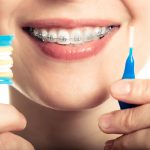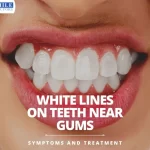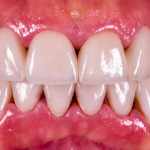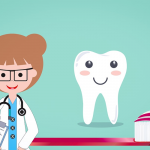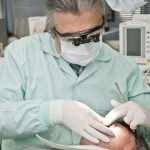As it is far more difficult to take a trip to the dentist or hygienist during the lockdown, taking good care of your teeth is more important than ever. As surgeries have suspended the provision of routine dental care following the latest government guidelines, your dentist Harrisburg NC will make sure you have the right information to take care of your teeth at home.
Brush your teeth at least twice a day
Maintaining your usual oral hygiene is essential during the lockdown. To remove plaque you need to brush your teeth for two minutes each time using fluoride toothpaste. You should also follow closely any individual advice on brushing that your dental professional has given you.
Floss regularly
Flossing is essential for good oral hygiene and gum health because it cleans those places between your teeth that your toothbrush can not reach. It is important to floss at least once a day.
Use mouthwash
A mouthwash or mouth rinse prevents bad breath and can help remove bacteria from your mouth. For best results gargle and swish the mouthwash in your mouth properly for about 30 seconds before spitting it out.
Reduce the intake of alcohol
Many bad oral hygiene issues develop due to excessive drinking, one of the most common being the staining of your teeth. Also, the sugar present in alcohol can cause cavities. Another cause of excessive alcohol intake is a reduced flow of saliva. This helps bacteria cling to your teeth and cause damage to them, along with your gums.
Maintain a healthy diet
it is always advisable to keep a healthy and balanced diet and to control your sugar intake. Since sugar can lead to tooth decay, consider replacing fizzy drinks with water and any sugary snacks for a healthier alternative. This is especially important in times when regular dental check-ups are not available.
Help your children look after their teeth
Make sure that your children are also following these oral hygiene best practices. If you have a baby, you should start brushing their teeth as soon as they come through.
Prepare an emergency kit at home
Since there are many instances in which you c\might develop tooth pain, it is a good idea to buy some painkillers to keep at home if an emergency occurs and there is no option of going to the dentist. Also, for those with fillings in their teeth, if it comes out you can use filling dental kits to put it back in place.
In case of a dental emergency contact a professional
Most common signs of an emergency are:
- Facial swelling extending to eye or neck.
- Bleeding following an extraction that doesn’t stop after 20 minutes of solid pressure with gauze.
- Bleeding due to trauma.
- Trauma resulting in a tooth being knocked out of the socket, or a large fracture resulting from trauma and causing severe pain.
- Significant toothache preventing sleep or eating, associated with significant swelling, or fever that cannot be managed with painkillers.
In case of any of the symptoms listed above contact your dentist.
I am a 26 year old young and witty girl, who simply loves to write and be around her friends. I am the one who believes in filling the heart of her readers with love, passion and contentment.



